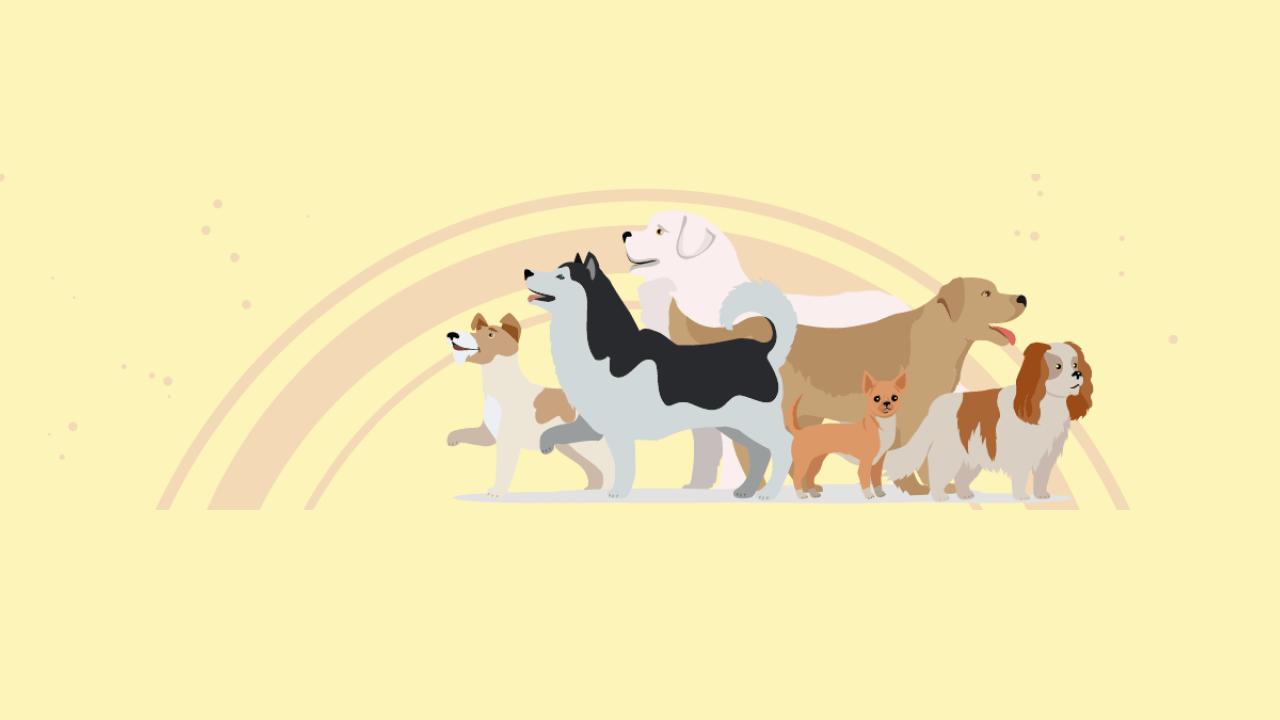The different stages of your dog’s life
International Dogs Day. As a dog owner you know that dogs are so special. They can be great companions or even brave guide and rescue dogs. No matter how tough things are, they give you joy, comfort and their unconditional love. So how can you help your four-legged friend stay healthy at any age? We’ve got some tips for you!

When it comes to dogs, not all life stages are created equal. It may sound curious, but when dogs pass from puppyhood into adulthood and old age actually depends on their size.
Please be aware that each dog is unique. So, while these different size categories are helpful to get an overall understanding, they can vary depending on the individual health status of your dog as well as specificities of breeds. Your veterinarian will be able to let you know how these categories relate to your own dog.
Why the connection between life stages and size?
Understanding how your dog’s size category relates to their life stage can be extremely valuable, as it can help you create a personalized healthcare plan that is tailored to your dog’s needs at the appropriate time. Especially when it comes to preventive care, this can make a huge difference.
Three different life stages are commonly recognized in dogs based on an understanding of how dogs mature and age both physically and behaviourally: puppy, adult and senior1. Here is an overview of when dogs of different sizes enter each life stage and what that means in terms of healthcare.
Tackling prevention, from puppy to senior

The puppy stage encompasses the rapid growth period lasting from six months for small dogs to a year for larger ones. This is the time to discuss the following topics with your veterinarian:

Puppyhood is a crucial period for the development of your dog’s behaviour and socialization. Inappropriate behaviour can be corrected with greater ease during this life stage. Ask your veterinarian about getting your dog used to having their mouth, teeth, ears and claws examined, and how to clean your dog’s teeth.
It’s also very important to get your puppy on a schedule for vaccinations and parasite control early on. Your veterinarian will advise you on what is the right plan for your puppy’s individual situation.

Now is the time to bring up the following topics with your veterinarian:

Don't forget that dogs can learn at every age! Continue to train and socialize your dog – it'll bring joy to both of you. it'll bring joy to both of you.

Once your dog enters into this life stage, you will have to pay even closer attention to their health. These topics are great to bring up with your veterinarian now:

Routine laboratory tests are particularly important for senior dogs as they allow early detection of diseases. Many illnesses and changes affecting senior dogs can be managed very successfully, leading to a good quality of life and longevity. quality of life and longevity.
Have your dog’s back at all times
Each stage of your dog’s life brings its own health challenges but also joys and experiences to remember. So make every moment count and be proactive in supporting your four-legged friend as their health needs change.
References
1. Adapted from: AAHA Canine Life Stage Guidelines 2019

